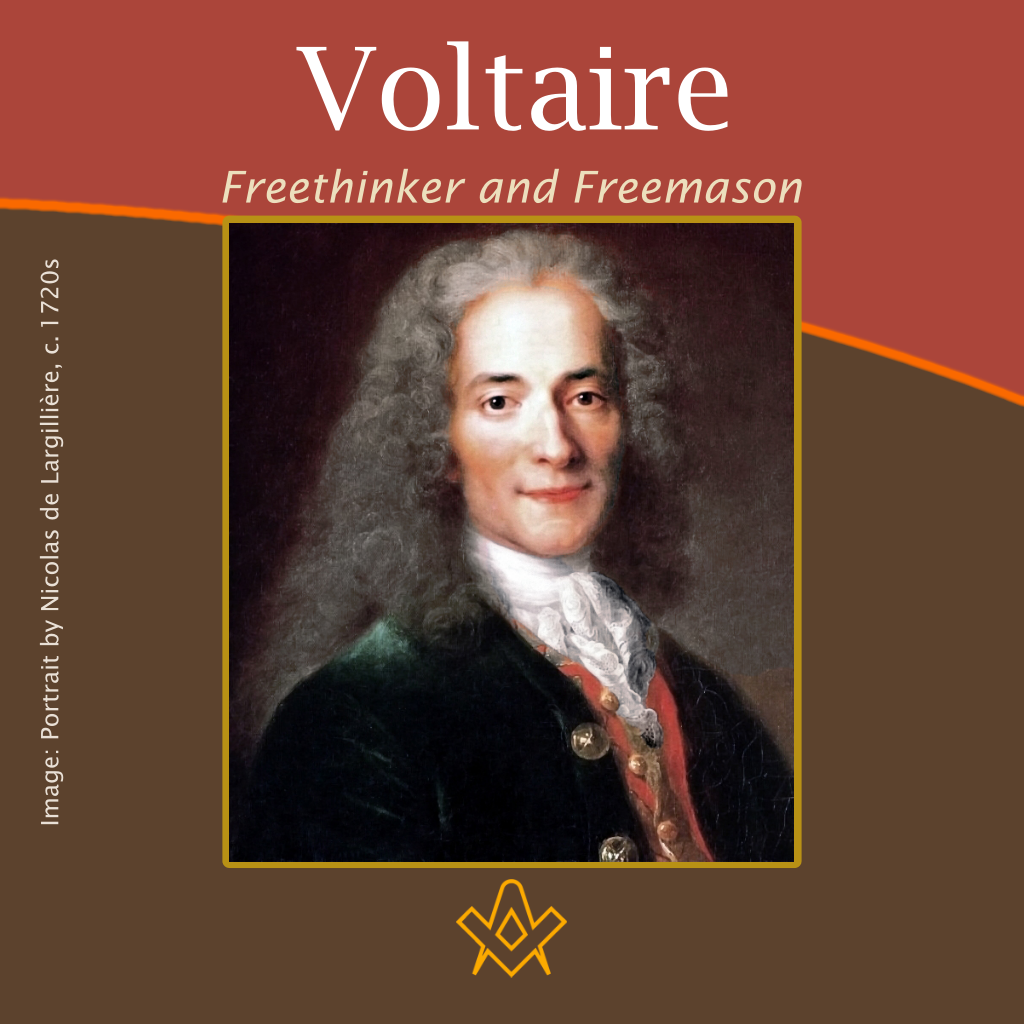Discover the intriguing connection between the Enlightenment genius, Voltaire, and his association with Freemasonry in his final days.
Early Life and Education (1694-1711): François-Marie Arouet, later known as Voltaire, was born on November 21, 1694, in Paris, France.
He was the youngest of five children in a middle-class family, and his father was a government official. Voltaire’s mother passed away when he was only seven years old. Raised in a religious household, he received a Jesuit education at the esteemed Collège Louis-le-Grand, where he studied rhetoric, philosophy, and theology.
During his time at the Collège, Voltaire was exposed to a variety of intellectual discussions, including the popular sciences and the works of philosophers such as Pierre Bayle and John Locke.
These influences would later become instrumental in shaping his philosophical ideas, rooted in skepticism and tolerance.
Despite his father’s insistence that he pursue a career in law, Voltaire’s true passion lay in writing. He started his literary journey with the composition of his first tragedy, “Oedipe” while still in school.
His passion for writing and his critical thinking abilities became evident at a young age and would later significantly contribute to his literary success.
2e édition de la pièce de théâtre Oedipe de Voltaire chez Ribou en 1719
IMAGE LINKED: wikimedia Attribution 4.0 International (CC BY 4.0)
Initial Career and Imprisonment (1711-1718)
After completing his education, Voltaire briefly followed his father’s wishes and worked as a secretary for the French ambassador in the Netherlands.
However, he soon abandoned his diplomatic career and returned to Paris to follow his true calling as a writer.
Voltaire became known for his sharp wit and satirical approach to social and political issues. His well-articulated views on religion, government, and other topics earned him a reputation as a fearless and influential thinker.
Sadly, his unrelenting criticism of societal norms and the government led to his imprisonment in the Bastille in 1717.
Voltaire was charged with libel against the Regent of France, Philippe II, Duke of Orléans. He spent nearly a year in prison, during which time he wrote his tragic play, “Oedipe.” Released in 1718, Voltaire quickly gained prominence as a playwright and poet.

Portrait of Philippe II, Duke of Orléans (1674-1723) then the “Regent of France” with the sash of the Order of the Holy Spirit, wearing armour.
IMAGE LINKED: wikimedia Attribution 4.0 International (CC BY 4.0)
Literary Success and Advocacy for Civil Liberties (1718-1733)
Over the next decade, Voltaire achieved significant literary success, producing works in various forms, including plays, poems, essays, historical works, and scientific treatises.
His multifaceted talent helped him emerge as one of the leading literary figures of the French Enlightenment.
At the heart of Voltaire’s works lies his unwavering advocacy for civil liberties. He was a staunch supporter of freedom of speech, freedom of religion, and the separation of church and state.
He criticized the close alliance of the church and state, which he believed hindered the progress of science and promoted ignorance, bigotry, and persecution. His perspectives on these issues fueled his mission to educate the masses and improve societal conditions.
Voltaire’s advocacy efforts focused on challenging intellectual dogmas, promoting tolerance, and addressing injustices done by religious and political powers.
His relentless commitment to these causes contributed significantly to the foundation of the Enlightenment movement, which would indeed change the world.
Voltaire’s Exile in Great Britain (1726-1728)
Following a contentious dispute with the Chevalier de Rohan-Chabot and an ensuing period of imprisonment in the Bastille, Voltaire requested exile in England as an alternative punishment.
French authorities agreed, and in May 1726, Voltaire embarked on a journey that would significantly influence his intellectual development.
Upon his arrival in England, Voltaire settled in Wandsworth and soon formed connections with prominent figures such as Everard Fawkener. Later, he moved to Maiden Lane, Covent Garden, to be closer to his publisher.
His stay in Great Britain allowed him to engage with distinguished minds such as Alexander Pope, John Gay, Jonathan Swift, and Lady Mary Wortley Montagu, among others.
Voltaire was especially captivated by the British constitutional monarchy, which starkly contrasted with France’s absolutism. Britain’s greater freedom of speech and religion deeply impressed him, as did its thriving literary and scientific efforts.
In particular, Voltaire was inspired by the works of William Shakespeare, although relatively obscure in continental Europe at the time.
Despite his critique of Shakespeare’s deviation from neoclassical standards, Voltaire appreciated the playwright’s ability to create powerful and engaging drama, something he felt was lacking in French theatrical productions.
As Shakespeare’s influence began to spread in France, Voltaire sought to challenge it with his plays, trying to showcase the balance between emotional depth and classical theatrical standards.

Portrait of Isaac Newton (1642-1727)
IMAGE LINKED: wikimedia Attribution 4.0 International (CC BY 4.0)
Voltaire’s time in England exposed him to the funeral of the visionary scientist, Sir Isaac Newton, leaving a profound impression on the French writer.
Inspired by the likes of Newton and other British intellectuals, Voltaire started publishing essays in English that asserted his newfound appreciation for British society and culture.
These early works include “Upon the Civil Wars of France, Extracted from Curious Manuscripts” and “Upon Epic Poetry of the European Nations, from Homer Down to Milton.”
After two and a half years living in Great Britain, Voltaire returned to France with a transformed outlook on politics, religion, and culture.
His experiences in England shaped his perspectives on civil liberties, tolerance, and the merits of a constitutional monarchy, significantly influencing his subsequent philosophical and literary endeavors.
Shortly after returning to France, Voltaire’s admiration for British society culminated in the publication of “Letters Concerning the English Nation” (published as “Lettres philosophiques” in French).
This collection of essays incited controversy due to its praise for Britain’s constitutional monarchy, religious freedom, and respect for human rights.
Despite facing censorship and backlash in his homeland, Voltaire remained unwavering in his convictions, profoundly influenced by his time in Great Britain.
Relationship with Émilie du Châtelet (1733-1749)
In the early 1730s, Voltaire became romantically involved with Gabrielle Émilie le Tonnelier de Breteuil, Marquise du Châtelet. Émilie du Châtelet was an intellectual powerhouse and a brilliant mathematician, which was highly unusual for a woman of her time.
She was adamant about her desire to engage in intellectual work and remained dedicated to her pursuits despite social pressure to fulfill traditional gender roles.
Despite being married and a mother of three, Émilie du Châtelet embarked on a passionate and intellectually stimulating relationship with Voltaire.
The two shared an intense love of science, literature, and philosophy that helped them form a deep bond. They worked together on various scientific projects and conducted experiments in their shared home, Cirey, a château in north eastern France.

Gabrielle Émilie Le Tonnelier de Breteuil, marquise du Châtelet (1706-1749), French mathematician and physicist
IMAGE LINKED: wikimedia Attribution 4.0 International (CC BY 4.0)
Their partnership was undoubtedly productive. Both Du Châtelet and Voltaire contributed to each other’s work, enriching their respective fields and pushing the limits of intellectual inquiry.
For instance, Du Châtelet translated and expanded on Isaac Newton’s Principia Mathematica, which was instrumental in promoting his ground breaking scientific ideas in France. In turn, Voltaire honed his skills in mathematics under her guidance, ultimately incorporating these ideas into his philosophical writings.
Their unique relationship, grounded in intellectual pursuit and mutual respect, persisted until 1749, when Émilie du Châtelet tragically passed away due to complications arising from childbirth.
Voltaire mourned her deeply and continued to acknowledge her remarkable legacy as a scientist, mathematician, and influential figure of the Enlightenment.
Exile in Prussia (1750-1753)
In the 1750s, Voltaire received a coveted invitation from King Frederick the Great of Prussia, who admired the writer’s wit and intellect. Eager to pursue intellectual opportunities in Frederick’s court, Voltaire left France and moved to Prussia.
He was warmly welcomed, and the two men enjoyed a mutual admiration for one another, discussing literature, philosophy, and politics.
However, tensions started to erupt between Voltaire and Frederick due to disagreements over creative work, philosophy, and personal matters.
The initially promising relationship deteriorated, ultimately leading to Voltaire’s departure from Prussia after only three years.
Life in Geneva and Ferney (1755-1778)
After leaving Prussia, Voltaire settled in Geneva, where he continued to write and support just causes.
However, the strict regulations in the Protestant city became stifling, which prompted him to move once again, this time to Ferney, a small village near the French-Swiss border.
In his residence at Ferney, Voltaire spent the majority of the final two decades of his life. He dedicated himself to various intellectual pursuits, including the construction of a large library and a theater.
Voltaire also continued to advocate for individuals who were unjustly persecuted, lending his voice and influence to their cause.
Final Years and Death (1778)
In 1778, at the age of 83, Voltaire returned to Paris to oversee the production of his play, “Irene.” He was received with great enthusiasm by the Parisian public, who hailed him as a heroic figure of the Enlightenment.
However, Voltaire’s health began to decline rapidly, and he passed away on May 30, 1778.
Despite his lifelong criticism of the Church, Voltaire, aware of the potential for his remains to be discarded in unconsecrated ground, was secretly buried in an abbey in Champagne.
His tomb was later transferred to the Panthéon in Paris, where his remains now rest alongside other great French thinkers, such as Rousseau and Victor Hugo.
Voltaire’s Works and Legacy
Throughout his lifetime, Voltaire penned numerous works that would leave a lasting impression on future generations. Some of his most notable works include “Candide,” “Zadig,” “The Age of Louis XIV,” and “The Maid of Orleans.”
Voltaire’s prolific writing served as a testament to his genius and his relentless dedication to the pursuit of knowledge and progress.
As a pioneer of the Enlightenment and a fierce advocate for civil liberties, Voltaire’s ideas and contributions have left an indelible mark on the world.
His unwavering commitment to challenging the status quo and promoting freedom of thought remains an inspiring example to all who strive for intellectual and societal progress.
Voltaire and Freemasonry
La Loge des Neuf Sœurs (The Nine Sisters), established in Paris in 1776, was a prominent French Masonic Lodge of the Grand Orient de France that was influential in organizing French support for the American Revolution.
The name referred to the nine Muses, the daughters of Mnemosyne/Memory, patrons of the arts and sciences since antiquity, and long significant in French cultural circles.
In 1778, the year Voltaire became a member, Benjamin Franklin and John Paul Jones were also accepted. Benjamin Franklin became Master of the Lodge in 1779, and was re-elected in 1780.
When Franklin, after a long and influential stay in Europe, returned to America to participate in the writing of the Constitution, Thomas Jefferson, a non-Mason, took over as American Envoy.
Voltaire was initiated into the lodge on April 4, 1778, in Paris; his conductors were Benjamin Franklin and Antoine Court de Gébelin. He died the following month. His membership, however, was symbolic of the independence of mind Les Neuf Sœurs stood for.
Benjamin Franklin, one of the Founding Fathers of the United States, was a key figure in the lodge. He served as the Venerable Master of the lodge from 1779 to 1781.
His influence and connections played a significant role in fostering the relationship between France and the emerging United States during the American Revolution.
In conclusion, Voltaire, Benjamin Franklin, and the Loge des Neuf Sœurs in Paris were interconnected. They were all part of this influential Masonic Lodge, which played a significant role in the cultural and political landscape of the time.
Additional Reading: Voltaire
Recent Articles: in people series
 Celebrate the extraordinary legacy of The Marquis de La Fayette with C.F. William Maurer's insightful exploration of Lafayette's 1824-25 tour of America. Discover how this revered leader and Freemason was honored by a young nation eager to showcase its growth and pay tribute to a hero of the American Revolution. |
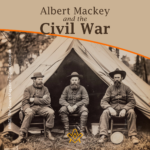 Albert Mackey and the Civil War In the midst of the Civil War's darkness, Dr. Albert G. Mackey, a devoted Freemason, shone a light of brotherhood and peace. Despite the nation's divide, Mackey tirelessly advocated for unity and compassion, embodying Freemasonry's highest ideals—fraternal love and mutual aid. His actions remind us that even in dire times, humanity's best qualities can prevail. |
 Discover the enduring bond of brotherhood at Lodge Dumfries Kilwinning No. 53, Scotland's oldest Masonic lodge with rich historical roots and cultural ties to poet Robert Burns. Experience rituals steeped in tradition, fostering unity and shared values, proving Freemasonry's timeless relevance in bridging cultural and global divides. Embrace the spirit of universal fraternity. |
 Discover the profound connections between John Ruskin's architectural philosophies and Freemasonry's symbolic principles. Delve into a world where craftsmanship, morality, and beauty intertwine, revealing timeless values that transcend individual ideas. Explore how these parallels enrich our understanding of cultural history, urging us to appreciate the deep impacts of architectural symbolism on society’s moral fabric. |
 Discover the incredible tale of the Taxil Hoax: a stunning testament to human gullibility. Unmasked by its mastermind, Leo Taxil, this elaborate scheme shook the world by fusing Freemasonry with diabolical plots, all crafted from lies. Dive into a story of deception that highlights our capacity for belief and the astonishing extents of our credulity. A reminder – question everything. |
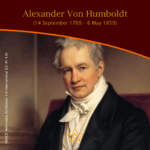 Dive into the extraordinary legacy of Alexander Von Humboldt, an intrepid explorer who defied boundaries to quench his insatiable thirst for knowledge. Embarking on a perilous five-year journey, Humboldt unveiled the Earth’s secrets, laying the foundation for modern conservationism. Discover his timeless impact on science and the spirit of exploration. |
 Voltaire - Freethinker and Freemason Discover the intriguing connection between the Enlightenment genius, Voltaire, and his association with Freemasonry in his final days. Unveil how his initiation into this secretive organization aligned with his lifelong pursuit of knowledge, civil liberties, and societal progress. Explore a captivating facet of Voltaire's remarkable legacy. |
 Robert Burns; But not as we know him A controversial subject but one that needs addressing. Robert Burns has not only been tarred with the presentism brush of being associated with slavery, but more scaldingly accused of being a rapist - a 'Weinstein sex pest' of his age. |
 Richard Parsons, 1st Earl of Rosse Discover the captivating story of Richard Parsons, 1st Earl of Rosse, the First Grand Master of Grand Lodge of Ireland, as we explore his rise to nobility, scandalous affiliations, and lasting legacy in 18th-century Irish history. Uncover the hidden secrets of this influential figure and delve into his intriguing associations and personal life. |
 James Gibbs St. Mary-Le-Strand Church Ricky Pound examines the mysterious carvings etched into the wall at St Mary-Le-Strand Church in the heart of London - are they just stonemasons' marks or a Freemason’s legacy? |
 Freemasonry and the Royal Family In the annals of British history, Freemasonry occupies a distinctive place. This centuries-old society, cloaked in symbolism and known for its masonic rituals, has intertwined with the British Royal Family in fascinating ways. The relationship between Freemasonry and the Royal Family is as complex as it is enduring, a melding of tradition, power, and mystery that continues to captivate the public imagination. |
 A Man Of High Ideals: Kenneth Wilson MA A biography of Kenneth Wilson, his life at Wellington College, and freemasonry in New Zealand by W. Bro Geoff Davies PGD and Rhys Davies |
 In 1786, intending to emigrate to Jamaica, Robert Burns wrote one of his finest poetical pieces – a poignant Farewell to Freemasonry that he wrote for his Brethren of St. James's Lodge, Tarbolton. |
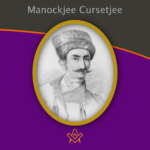 Alex Lishanin explores Mumbai and discovers the story of Lodge Rising Star of Western India and Manockjee Cursetjee – the first Indian to enter the Masonic Brotherhood of India. |
 Aleister Crowley - a very irregular Freemason Aleister Crowley, although made a Freemason in France, held a desire to be recognised as a 'regular' Freemason within the jurisdiction of UGLE – a goal that was never achieved. |
 Sir Joseph Banks – The botanical Freemason Banks was also the first Freemason to set foot in Australia, who was at the time, on a combined Royal Navy & Royal Society scientific expedition to the South Pacific Ocean on HMS Endeavour led by Captain James Cook. |
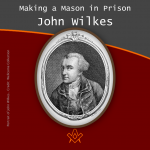 Making a Mason in Prison: the John Wilkes’ exception? |
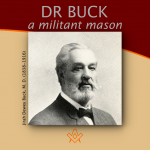 "To be a good man and true" is the first great lesson a man should learn, and over 40 years of being just that in example, Dr Buck won the right to lay down the precept. |
 Elias Ashmole: Masonic Hero or Scheming Chancer? The debate is on! Two eminent Masonic scholars go head to head: Yasha Beresiner proposes that Elias Ashmole was 'a Masonic hero', whereas Robert Lomas posits that Ashmole was a 'scheming chancer'. |
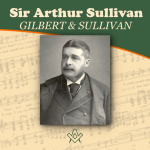 Sir Arthur Sullivan - A Masonic Composer We are all familiar with the comic operas of Gilbert and Sullivan, but did you know Sullivan was a Freemason, lets find out more…. |
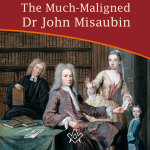 The Much-Maligned Dr John Misaubin The reputation of the Huguenot Freemason, has been buffeted by waves of criticism for the best part of three hundred years. |
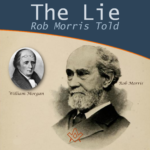 Was William Morgan really murdered by Masons in 1826? And what was the lie Masonic author Rob Morris told? Find out more in the intriguing story of 'The Morgan Affair'. |
 Lived Respected - Died Regretted Lived Respected - Died Regretted: a tribute to HRH The Prince Philip, Duke of Edinburgh |
 Who was Moses Jacob Ezekiel, a Freemason, American Civil War Soldier, renowned sculptor ? |
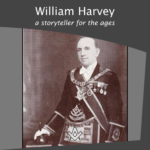 A Masonic author and Provincial Grand Master of Forfarshire in Scotland |
 Who was Philip, Duke of Wharton and was he Freemasonry’s Loose Cannon Ball ? |
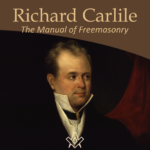 Richard Carlile - The Manual of Freemasonry Will the real author behind The Manual of Freemasonry please stand up! |
 Nicholas Hawksmoor – the ‘Devil’s Architect’ Nicholas Hawksmoor was one of the 18th century’s most prolific architects |
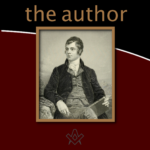 By Bro. Anthony Oneal Haye (1838-1877), Past Poet Laureate, Lodge Canongate Kilwinning No. 2, Edinburgh. |
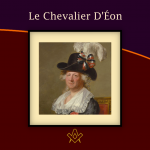 The Curious Case of the Chevalier d’Éon A cross-dressing author, diplomat, soldier and spy, the Le Chevalier D'Éon, a man who passed as a woman, became a legend in his own lifetime. |
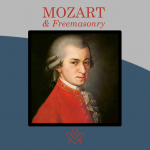 Mozart Freemasonry and The Magic Flute. Rev'd Dr Peter Mullen provides a historical view on the interesting topics |
masonic knowledge
to be a better citizen of the world
share the square with two brothers

click image to open email app on mobile device



